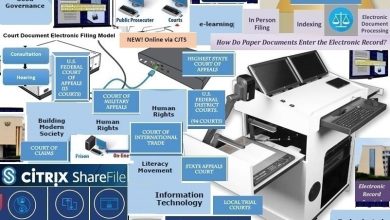
During 2016, the NTP platform was nominated as the Best Smart City Project in the Economic Development category of IDC’s SCAPA awards. In 2017, the NTP won the e-business category of WSIS.
Abbreviations:
The International Data Corporation (IDC)
Smart City Asia Pacific Awards (SCAPA)
The World Summit on the Information Society (WSIS).
Declaring Agent (DA)
The inter-Bank GIRO (IBG)
Goods and Services Tax (GST)
Singapore Personal Access (SingPass)
The Government Technology Agency of Singapore (GovTech) is a statutory board of the Singapore government, under the Prime Minister’s Office.
The National Computer Board (NCB)
The Telecommunication Authority of Singapore (TAS)
The Infocomm Development Authority of Singapore (IDA). (Preceding agencies of the NTP were NCB, TAS and IDA).
The Monetary Authority of Singapore (MAS)
First of all, I need to clarify a few terms. RIPP-DV-ACC is my definition of a Resillient person (to be Intelligent, Persuasive and Persistant); a RIPP-DV-ACC person listens to the cues of social media and creates a Digital Voice (DV) through Awareness (a Demarcated or Niche area) with online Contents and Collaboration with similar minded people. In my last podcast meeting, I referred to abbreviations that this day and age wants from us. In Storytelling (Writing and Authorship) it is certainly true. So it must be true in other areas and careers of the pandemic age. Never before has technology played such a huge role in our daily lives. With lockdowns, even schooling has been digitised.
This is where education plays a role. Before, to educate people in a certain area and to prepare them for a role, seminars were offered. Now, due to the global pandemic, countries find themselves in lockdown periods to protect their people and civilisations from extinction. Seminars have been replaced by Webinars (online seminars). During my entire life, I have not been aware of terms such as Awareness, Resillience, Collaboration, and Niche. These terms all pertain to digital armour and the question ‘how are you going to cope during the pandemic?’ At the beginning of the global pandemic period, offices were closed, supermarkets were bought empty, people were told to stay at home, and chaos existed. People found solace by expressing their opinions on social media. With the norm of ‘social distancing’ or better put as ‘physical distancing’, everybody tried their best to establish a digital social presence to serve as non-distant measure. This is where I discovered these unfamiliar terms. It is a new way of working – to try and fulfil the roles of the representative careers. I quickly adapted to change and adopted the terms by deciding to be heard on social media. I describe my online ‘voice’ as my Digital Voice. It ‘talks’ on my behalf when I cannot be digitally present.
Before, when my mind was set on the psychological interpretation of these concepts, I decided that they all refer to one or other aspect of a person’s online presence. I quickly learned that they refer to how you conduct your online presence. I started having online Zoom meetings with people in my field such as authors and people in publishing areas and discovered the term Awareness. Again, here is a new term with a different meaning than I contemplated. The term certainly does not mean being aware of the protruding danger and preparing your psychological flight-and-fight mechanism. All these terms pertain to something having an online presence. Awareness is to put out digital content that will mark you as being conscious of things happening in a certain area. I soon discovered that it meant putting out content and collaborating (speaking to other people through online meetings to make people aware of matters and inform and educate them. In other words, this is called Niche or online demarcation area. Everybody is creating an online presence and even trying new areas; they are crafting awareness through contents in order to collaborate online. If this works and has the results that one intends, one can craft a whole new career which will last throughout the lockdown and after the pandemic has subsided.
Singapore Government went as far as to create the Networked Trade Platform and collaborated with financial institutions to create an online platform where customers who want to import and export and need documentation for Customs could register an online TradeNet account on the NTP platform to smooth out the procedures of Customs. They identified roleplayers to involve in this process such as SingPass, GovTech, and TFC. This amalgamated the companies into one.
Here I need to clarify a few abbreviations. The government of Singapore consists of several departments, known as ministries and statutory boards. Ministries are led by a member of the cabinet and deal with state matters that require direct political oversight. A senior minister of the cabinet is supported by a junior minister. SingPass was launched during 2003 and allows users to easily and securely access hundreds of digital services that are provided by more than 60 government agencies. Singapore spearheads the global digital gateway with the Networked Trade Platform (NTP). With the support of more than twenty other government agencies, ministries, and working groups, all trade related matters concerning Singapore Customs are dealt with through Government Services. The NTP, developed by Singapore Customs and GovTech, to assist International Trade and Development, is a one-stop trade and logistics ecosystem that supports digitalisation. Singapore government offers service providers of the trade value chain (in Singapore and abroad) a single trade platform to digitally manage documents and add value-added services (VAS) such as cargo insurance, customs declarations and payment reconciliation. These services allow them to arrange shipments easily, improve cash flow, and improve trade compliance. By connecting to the NTP, businesses save time and costs, and are digitally connected to trading partners and counterparties across the globe. Everything is done on one platform!
The NTP was restructured from IDA and officially legislated in Parliament on 18 August 2016. After the formation of the Smart Nation and Digital Government Group during May 2017, GovTech was placed under the Prime Minister’s Office as the implementing agency of the Group; therefore, GovTech is the lead agency driving Singapore’s Smart Nation initiative and public sector digital transformation. GovTech uses technology to improve the lives of everyday Singaporeans – engaging in real-world problems such as healthcare, housing, security, and transport. It allows thousands of government procurements to register with the Ministry of Finance, Singapore, and to register tenders with the relevant information. The NTP provides the foundation for Singapore to be a leading trade, supply chain and trade financing hub. Designed as an open digital platform, the NTP is the one-stop trade and logistics ecosystem for Singapore and will be introducing initiatives to link up the various parts of the trade ecosystem to enable all stakeholders to reap the benefits of digitalisation, connectivity and interoperability. The trade value chain providers can engage and collaborate, expand their connections, and discover new business opportunities. There is a range of innovative and value-added services to drive businesses forward. This is the government’s effort to drive digital transformation across industries. Trade value chain providers who intent to engage in import and/or export activities register for a TradeNet account on the NTP platform, retrieve information, and execute documentation for trade formalities such as cargo clearance and transhipment permits. A provider needs to register as a DA and authorise individuals to use their entity’s IBG to pay for duties and GST. Entities that qualify for duty exemption and/or GST relief, may apply to register their personnel as Claimants in order to apply for exemption permits. If you are immigrating to Singapore and wish to claim GST relief on the import of your household items, personal effects, and pets, you may submit an application to Customs for assessment of your eligibility.
According to Gillian Tan, Executive Director, Financial Markets Development Department, MAS, a new government e-service, Trade Finance Compliance (TFC), was introduced on 5 September 2019 on the NTP. The new e-service is a result of a joint government-industry partnership between Singapore Customs, the MAS and leading financial institutions. Using data derived from permits issued by Singapore Customs, the TFC service will allow financial institutions to reference such information to augment their checks for trade finance compliance. ‘The TFC service is a valuable risk management tool. By digitalising the trade finance compliance check process and directly referencing pricing and permit-related customs data on Singapore imports and exports, the TFC increases the accuracy and efficiency of trade finance compliance checks for financial institutions in Singapore. As a result, these financial institutions are better able to detect fraud and mitigate risks associated with trade-based money laundering.’ Currently, BNP Paribas, DBS Bank, ICBC, MUFG Bank, OCBC Bank and UOB have signed up for the TFC Service on the NTP. According to Ms Serene Ho, Director of the NTP Office, Singapore Customs, ‘the TFC service is a result of collaborative efforts between industry and government agencies. They work with leading trade finance banks and the MAS to digitalise the trade finance compliance process and how data from permits issued by Singapore Customs can be made available to augment the trade finance compliance needs of the financial institutions’. Their mission is to work closely with the industry and the government partners to digitalise the trade and trade finance processes and develop new and innovative services for the trading community on the NTP.
The TFC Service consists of 3 functions that are available on the Networked Trade Platform (NTP). Of the 3 functions, 2 of them would require traders’ consent to Singapore Customs via the NTP before the data can be released to specific Financial Institutions to support trade finance compliance checks. The introduction of the TFC Service on the NTP enables all trade finance transactions for non-commodities to be verified from a reliable source of data that is taken from permits issued by Singapore Customs under the Regulation of the Imports and Exports Act (RIEA). Traders need to authorise Singapore Customs to release their data to financial institutions for specific purposes.











